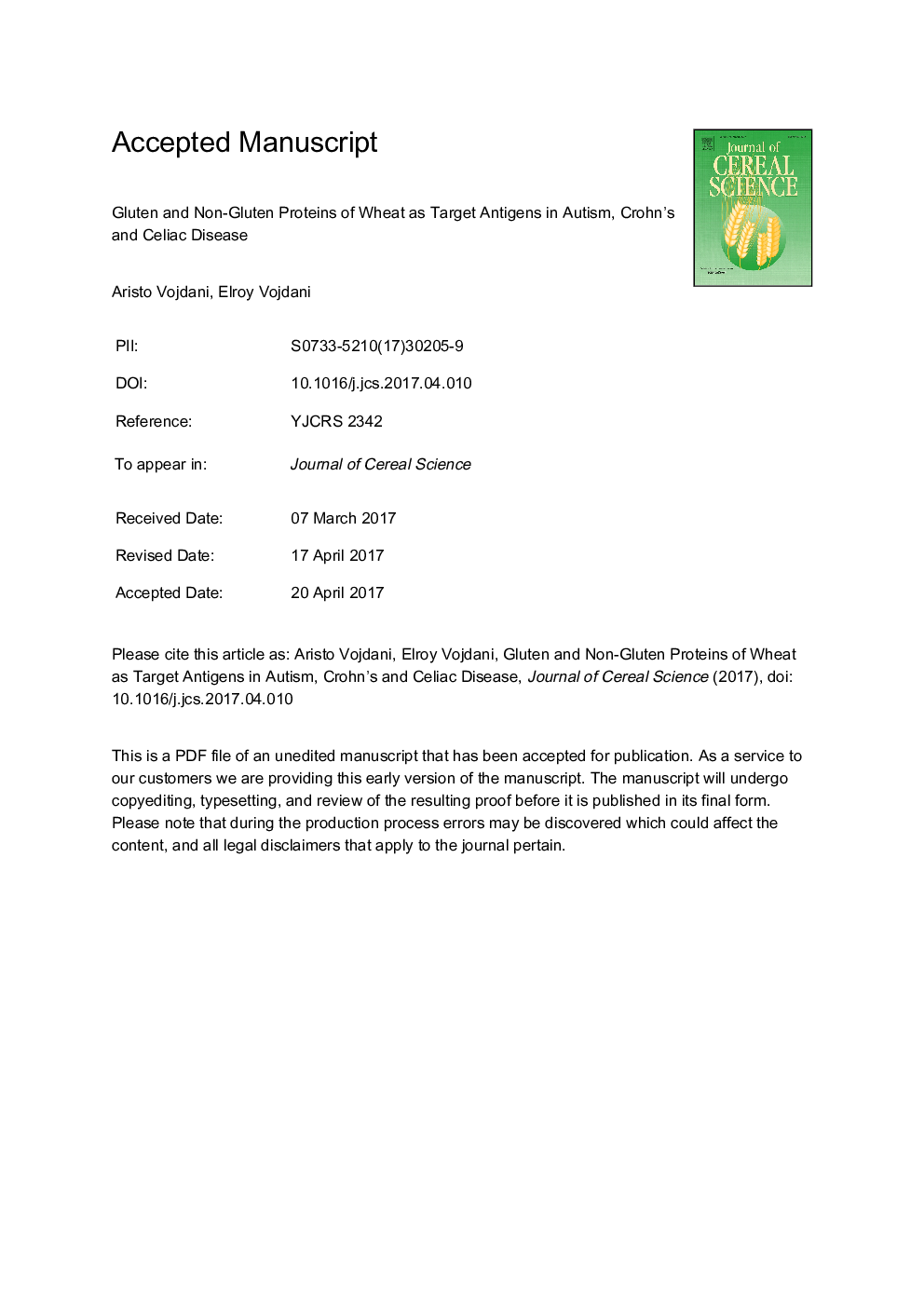| Article ID | Journal | Published Year | Pages | File Type |
|---|---|---|---|---|
| 5762378 | Journal of Cereal Science | 2017 | 31 Pages |
Abstract
Studies show that patients with celiac disease react not only with gluten wheat proteins but also with non-gluten wheat components. Our goal was to measure IgG or IgA antibodies against wheat proteins or peptides that would provide the most sensitive method for the detection of wheat immune reaction in children with autism spectrum disorder, and patients with Crohn's and celiac disease (CD). Using ELISA, we measured these antibodies against various gluten and non-gluten wheat proteins. Compared to controls in all three conditions, the strongest reaction was against CXCR3-binding gliadin peptide, followed by a wheat protein mixture, and α-gliadin 33-mer peptide. We determined that a sample that strongly reacted against non-gluten proteins also reacted strongly against gluten proteins. We also found that IgA antibodies against CXCR3-binding gliadin peptide were strongly reactive in a subgroup of 33% in the autism group, 42% in the Crohn's group, and all tested samples with CD. The results indicate that measuring IgG and IgA antibodies against non-gluten proteins adds nothing to the pathologic relevance of these antibodies. Further research is needed on CXCR3-binding gliadin peptide antibodies as a possible biomarker and as a guide for dietary elimination in CD, Crohn's disease and a subgroup of children with ASD.
Related Topics
Life Sciences
Agricultural and Biological Sciences
Agronomy and Crop Science
Authors
Aristo Vojdani, Elroy Vojdani,
